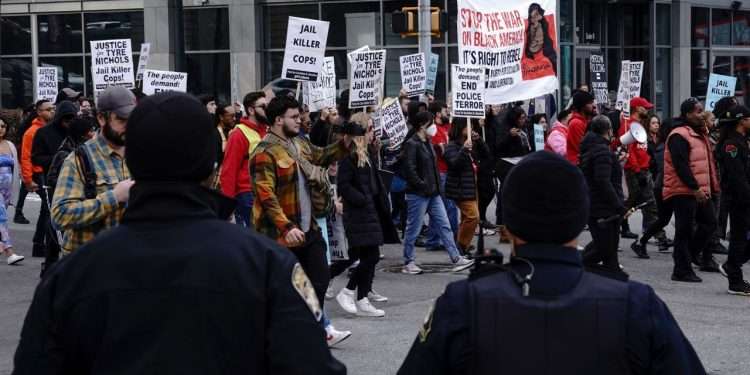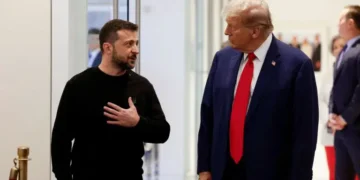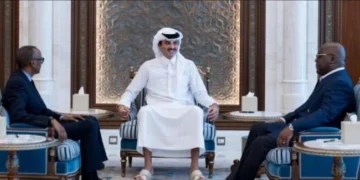After a video showing the severe beating of Tyre Nichols, 29, by Memphis police was released, protesters once again flocked to the streets over the weekend to denounce police violence.
On Saturday, people marched in cities around the United States carrying placards honouring his name and demanding a stop to abuses of authority. These cities included New York City, Atlanta, Boston, Baltimore, Los Angeles, San Francisco, and Portland.
Kiara Hill, a Memphis local, shared her sadness at a makeshift memorial set up near the intersection where Nichols was attacked, adding that the area was usually peaceful and safe for families.
Heartbreaking, to see this Tyre Nichols issue play out the way it has. Hill said to CNN, “I have a son.” When compared to the other responding police, Tyre showed the most composure.
Still, a video provided by the City of Memphis showed police attempting to hold Tyre Nichols after a traffic stop.
A severe assault. Crying out for comfort from his mother. Help arrives 23 minutes late. Here are the most important takeaways from the police recordings of Tyre Nichols:
The video begins with a traffic stop on January 7 and shows cops hitting the young Black guy with batons, punching and kicking him, even at one point while his wrists are held behind his back. Throughout the interaction, Nichols can be heard screaming for his mother.
It took 23 minutes for a stretcher to come after he was left lying on the ground handcuffed. In the end, Nichols ended himself in the hospital, where he stayed until his death three days later.
Nichols’ family attorney Ben Crump told CNN’s Dana Bash on Sunday, “All of these policemen breached their oath.” They betrayed the trust placed in them by taking an oath to serve and protect the people. Check out that footage: Did someone make an effort to look out for Tyre Nichols and look after him?
Since Nichols’s passing, the criticism has moved quite quickly. Nichols’s death led to the dismissal and criminal charges of all five Black cops from Memphis who participated in the beating. Members of the unit were terminated, and legislators from the Memphis region in the state legislature began working on police reform legislation.
The swift dismissal of the officers involved, subsequent arrests, and public release of the video, according to Crump, should serve as a “blueprint” for future investigations of complaints of police brutality. He praised Memphis Police Chief Cerelyn Davis for bringing charges against the cops so quickly, saying it only took 20 days.
Crump urged the department to take prompt action against officers who conduct crimes against civilians, saying, “We need to see it too when it’s White police officers, and the community needs to see it, just as the chief indicated.”









